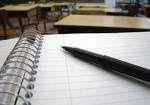
The United States' copyright regulations protect original works in many different types of media. Authors who produce an original work, even if it is unfinished, can get a copyright for their work. Literature is not the only thing that get a copyright, but musical works, dramatic works, architectural works, and more can be protected too. This is to ensure that the public will know the original creator of the work so that everyone does not claim the credit for it. Because of the copyright laws, it is important to give credit to the original creator or author of the work when the ideas or statements you are presenting are not yours originally. If you fail to give credit to the original author, you have committed plagiarism.
Plagiarism is one of the worst offenses that a student can make and is usually grouped in the academic dishonesty category (cheating). There are several ways to give credit to the original author and avoid plagiarizing. For example, when using a direct quote from someone (as in an interview, for example) or someone else's work, use quotation marks and give the name of the source from which it came. Also, if you are paraphrasing someone else's words, you must use your own words to summarize the work and cite the source from which those things came. There are some things that you do not have to cite a source for such as common knowledge and, of course, your own experiences, thoughts, and ideas that did not come from anyone else. Sometimes people accidentally plagiarize because some things are unclear whether to cite or not, but when in doubt you should go ahead and cite the source. That will avoid trouble in case you would have plagiarized without citing. Plagiarism is a serious offense, and it is completely avoidable. We must all remember to give credit where credit is due.
This information is a summary from the following plagiarism websites:
The OWL at Purdue 1
The OWL at Purdue 2
Indiana University Writing Tutorial Services
Bates College Statement on Plagiarism
U.S. Copyright Office
Plagiarism is one of the worst offenses that a student can make and is usually grouped in the academic dishonesty category (cheating). There are several ways to give credit to the original author and avoid plagiarizing. For example, when using a direct quote from someone (as in an interview, for example) or someone else's work, use quotation marks and give the name of the source from which it came. Also, if you are paraphrasing someone else's words, you must use your own words to summarize the work and cite the source from which those things came. There are some things that you do not have to cite a source for such as common knowledge and, of course, your own experiences, thoughts, and ideas that did not come from anyone else. Sometimes people accidentally plagiarize because some things are unclear whether to cite or not, but when in doubt you should go ahead and cite the source. That will avoid trouble in case you would have plagiarized without citing. Plagiarism is a serious offense, and it is completely avoidable. We must all remember to give credit where credit is due.
This information is a summary from the following plagiarism websites:
The OWL at Purdue 1
The OWL at Purdue 2
Indiana University Writing Tutorial Services
Bates College Statement on Plagiarism
U.S. Copyright Office

No comments:
Post a Comment